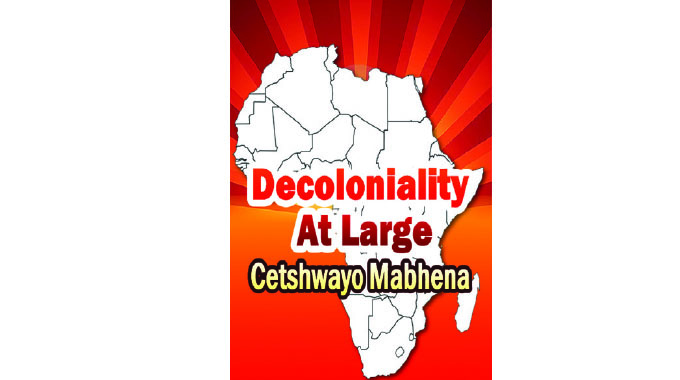
The Sunday News

What kind of political, economic and social world will come to be after the Covid-19 pandemic has finally been subdued and contained is a question that is troubling the thinking world.
My submission has always been that there is never going to be a post-Covid-19 world but a Covid-19 world where the pandemic will eventually have been graduated into an endemic that we will have to live with and manage for all the days of our lives. The present vaccinations that are taking place in all the countries of the world, accompanied by social behavioural changes, are only ways of managing and not solving the pandemic.
That is the process of taming the pandemic from its radical violence to the manageable calm of an endemic to which HIV and Aids have been reduced in the past decade. Both scientists and their across the road cousins, the philosophers, are talking increasingly cautiously about the unfolding condition of the human population in a Covid-19 world.
Slavoj Zizek rather hurriedly pronounced the end of capitalism as we know it because Covid-19 appeared to target the very arteries of the capitalist world system that depends on the life and movement of human beings, goods and services. Giorgio Agamben forcefully enunciated the problematic where tyrannical regimes of the world will ride on the pandemic to levy intense regimes of surveillance and control of populations in different countries.
Ever reflective and sober, Boaventura Santos counseled caution and asked intellectuals to play a more rear-guard than a vanguard role in the struggle against the pandemic as the common people were the true victims that experienced the pandemic in all its manifestations and were to be the primary source of information and knowledge about it.
It was important to Santos that we talked with and not talk at the so-called ordinary people. In a big way, Santos has led the global decolonial community in demanding that “epistemologies of the South,” the histories, knolwedges and thoughts of the people from the Global South are going to, at long last, be the foundation of the salvation of the world and humanity.
And in truth, alongside the vaccines from the West and the East, indigenous methods of boosting bodily immunity and containing ailments that have been used, over the centuries, by the people of Africa, Asia and Latin America are proving to be potent weapons against the pandemic.
Will Covid-19 leave us poorer?
I attended the Mapungupwe Institute for Strategic Reflection (MISTRA) 10th Annual Lecture on the 31 August 2021.
MISTRA was in alliance with the University of Johannesburg (UJ). The lecturer, that is the presenter, was a thorough going social scientist, Jonathan Ostry. Ostry is the Deputy Director of the Asia Pacific Department of the International Monetary Fund (IMF). He is a macroeconomist of world standing and so a weighty social scientist that comes dangling notable experience and other credentials.
Authority can be everything in the thinking world. Ostry’s topic was: Will Covid-19 raise inequality? : Evidence from past pandemics. Ostry was the first one to note that past pandemics happened in totally different worlds and times compared to ours, hence learning from them comes with a lot of theoretical and methodological slippery slopes.
What has not changed with us and what we share with the worlds and the peoples of the previous pandemics is our capacity as human beings to construct conspiracy theories and resist treatments and preventions of the diseases to tragic and catastrophic ends, I personally think.
I held my mouth as Ostry spoke about ‘inequality’ in the whole world and used formulae to calculate and spell out rates and percentages of inequality with amazing certainty and authority. Social inequalities will increase at a world scale because Covid-19 found a huge population of the poor in the world and has produced ‘new poor people,’ those that were not poor but will from now on be poor.
Our world will be served by new advances in science and automation. We should work over time to address present “vaccine inequalities” amongst countries and populations of the world. Our attitudes and personal decisions, and behaviour, first as individuals and then as communities will decide if we live or die. Our world is lucky, otherwise, because “it has billionaires that worry about inequality” which previous worlds did not have.
Ostry’s conclusion was that public policies, good governance and willingness by governments to spend towards mediating the pandemic will decide the future of the human family in the world. In short, we do or we die. Much like I have observed here before, the vaccines are not the biblical blood of the Passover by which some will be served from the angel of death. Yes, but the ark of Noah from which not everybody is permitted.
Vaccinate or vaccinate; the two options
I saw a curious Meme in the social media that read: “We live in interesting times where those that have vaccinated are waiting for those that have not vaccinated to die; and those that are not vaccinated are waiting for those who have vaccinated to die.” That is one joke that carries the true paradox of our times.
Those that are for vaccination are confident in their truth and those that are against it are equally, if not more, sure of the correctness of their stand.
Experience and knowledge from the previous pandemics shows that those that have vaccinated have never lived to regret their decisions. But many that have positioned themselves against vaccination have, in their numbers, pleaded to be jabbed urgently from their deathbeds. It seems to me that we have two bold choices, to vaccinate or to vaccinate again; the other options are more dangerous than the Virus itself.
Cetshwayo Zindabazezwe Mabhena writes from Gezina, Pretoria, in South Africa. Contacts: [email protected].



